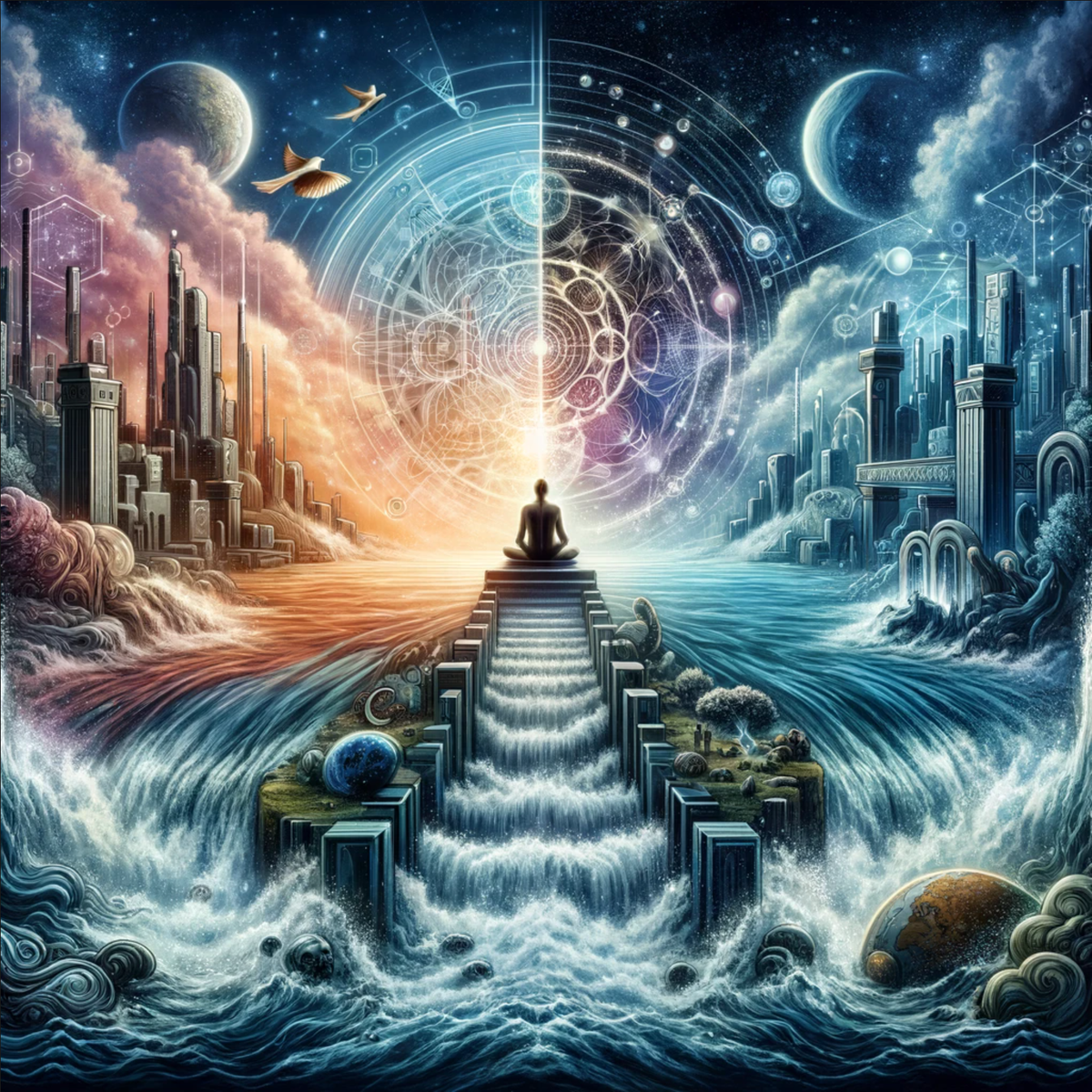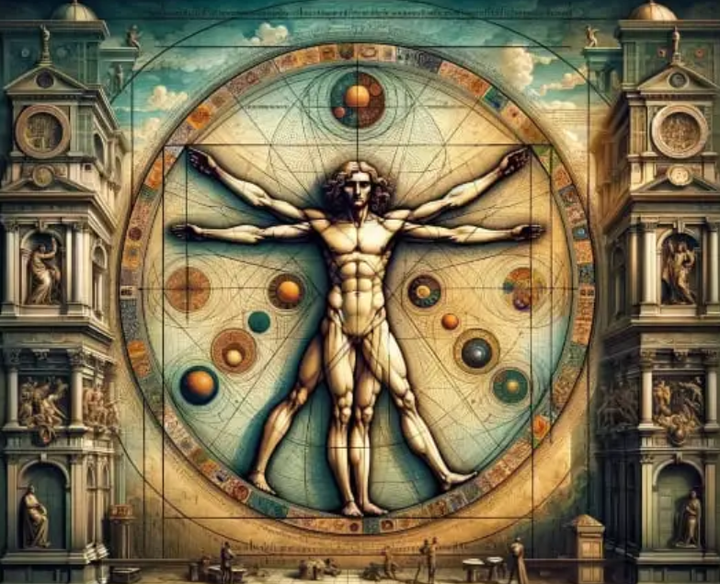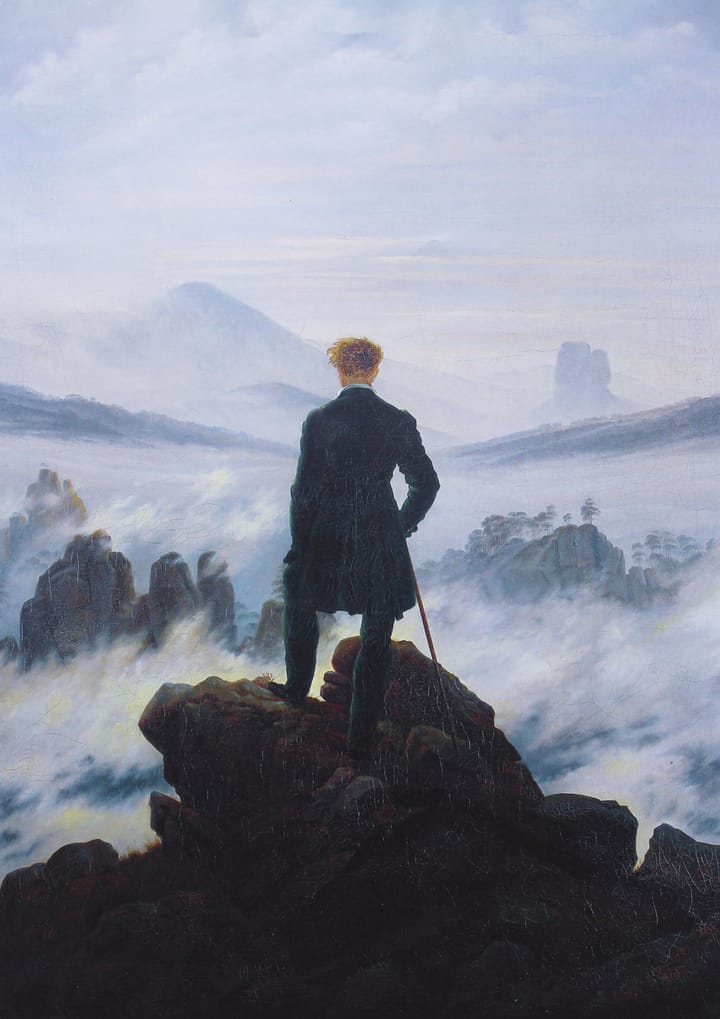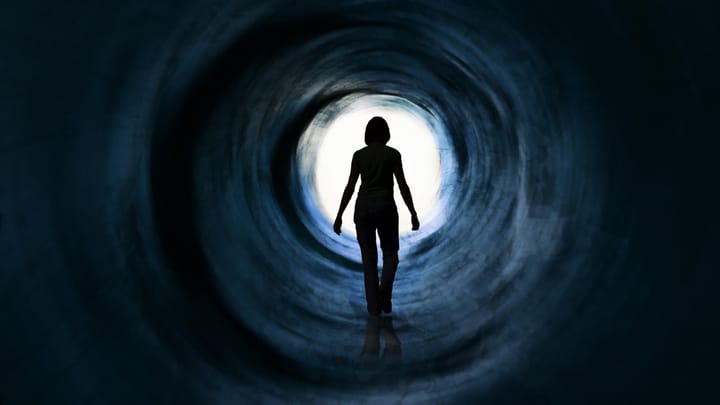Consciousness and History: Navigating a Unique Juncture

Our place in history: There is a common binary view of history: one that either romanticizes the past as a golden era and views the future with doom, or regards the past as primitive, eagerly awaiting a golden future. These perspectives, however, can also overlook the fact that history is written by the victors, adding another layer of complexity to our understanding. Despite this, I adopt more of a “Dickensian” view—where every period, every moment, is seen as having both the best and the worst of times. But there is another aspect to understanding history that most of us can agree on: history advances through long periods of relative stability, punctuated by brief yet profound shifts brought on by significant events, catapulting us into rapid transformation. I posit we’re on the cusp of such a transformative period.
Consciousness at the Forefront: At the heart of this transformative period lies the exploration of consciousness. This is not a call towards a new age of Aquarius, but rather a pragmatic shift in focus. We have made incredible progress in physics. It’s now an opportune moment for metaphysics alongside physics to engage rigorously with consciousness and the many unexplained experiences we share. This approach promises a more holistic and complete understanding of the world we inhabit.
Defining Metaphysics: Metaphysics is the study of reality's basic nature, including consciousness, that goes beyond the physical aspects explored by physics, focusing on deeper existential and experiential questions. This interdisciplinary approach allows us to bridge the gap between the observable and the subjective, offering a fuller picture of reality.

I am neutral: My ambition is straightforward—to understand the essence of consciousness, regardless of where that quest may lead. My often advocating for consciousness as a fundamental aspect springs from observing the substantial challenges in localizing consciousness solely within the brain, despite the irrefutable correlations. Should evidence prove otherwise, you’ll find me embracing that conclusion. Until then, I remain skeptical of simplifying our existences’ most vital aspect to mere illusions or hallucinations. After all, if such is the case, who experiences these illusions?
Closing Reflection: I hope you see the circularity — that we always seem to get back to the enigma of consciousness (I exist, I experience, I feel), which yet leaves us with more questions than answers. This unresolved mystery ensures I’ll have much more to explore and share. Join me next week as we continue this journey.


